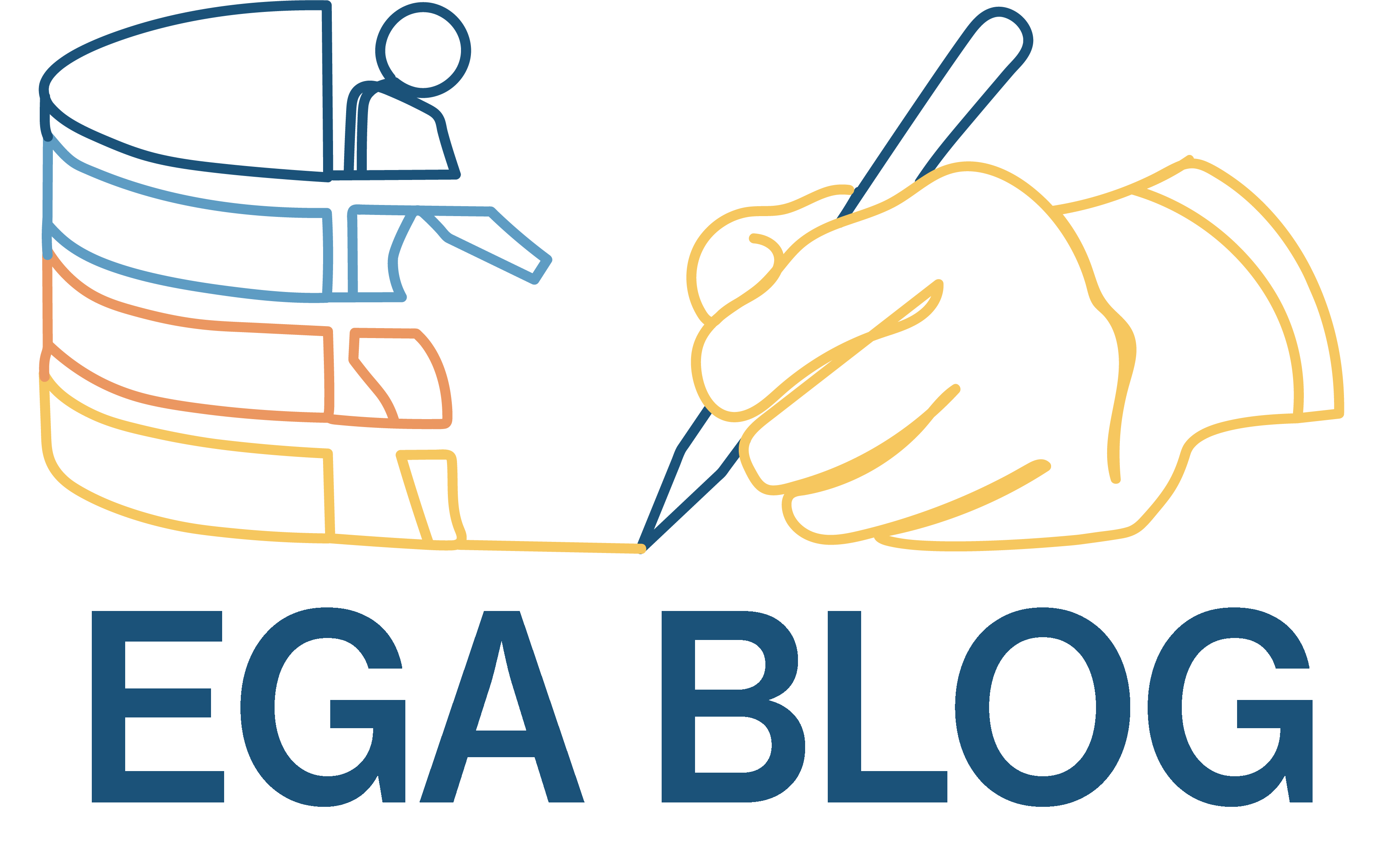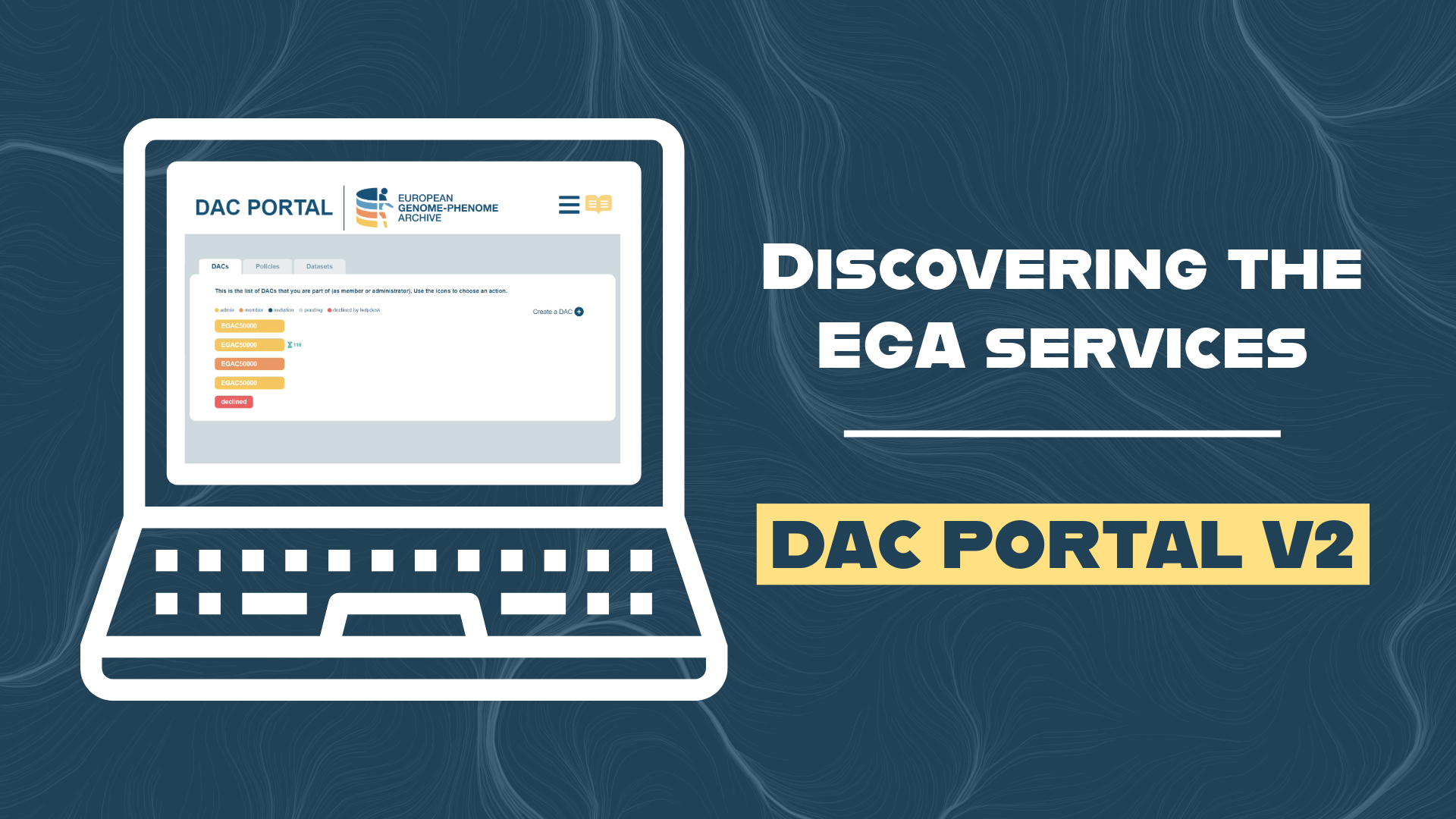An updated version to boost the management of DACs (Data Access Committees), policies, and data access requests.
In September of 2023, we launched new services for all EGA users, including a DAC Portal. Since then, our team has been working to refine it and improve the user experience. The version 2 of our DAC Portal is now ready, with a range of new features aimed at streamlining your workflow and boosting productivity.
If you are interested in learning more about the latest version of our DAC Portal, then you are in the right place! In this post, you will find information about the implemented features and more.
The full documentation is available on our website. Moreover, we highly recommend exploring the DAC Portal through the Take the Tour. This said, let's get cracking!
Customise your data access requests table
This table offers the possibility to tailor information about the data access requests by making visible or hiding different columns regarding the Dataset Persistent Identifier, the Organisation or the requestor's name s, among others. You can choose which columns to see, depending on your needs and interests.
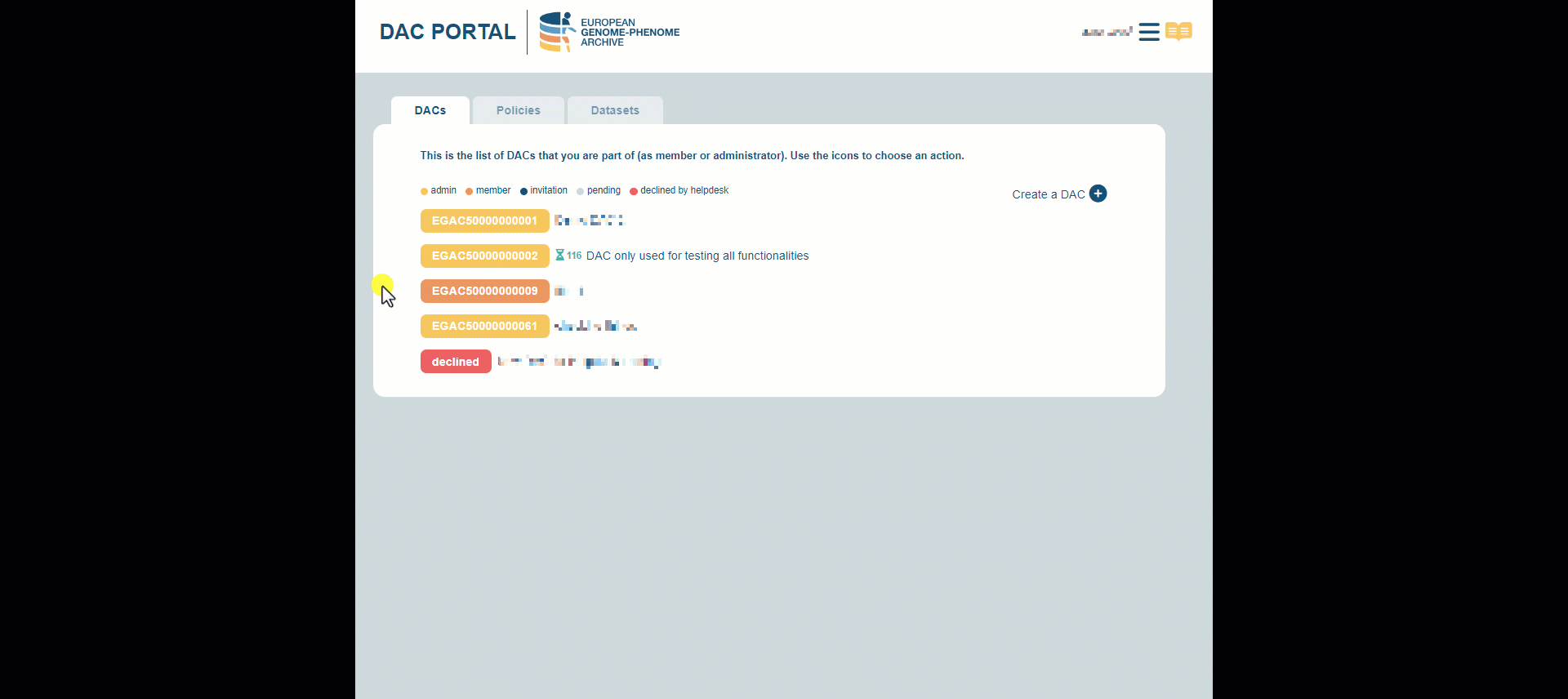
Additionally, we have implemented two new features columns with two new functionalities, DAC Comment and Expiration Date. You can find more details in the following sections!
In this table, all data access requests are displayed by default. With the latest version of the Portal, you can now apply filters, combine them, and save them for future use.
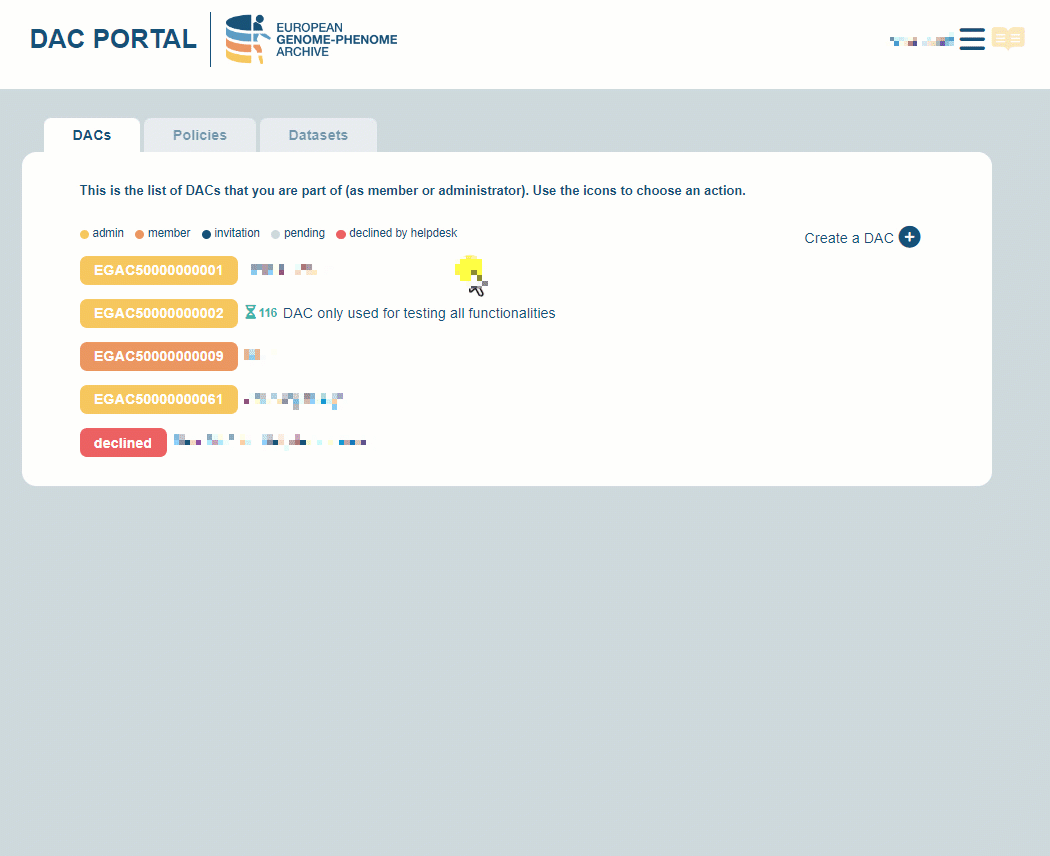
Leave internal comments on pending requests and visible to all the DAC Members
We understand that many Data Access Committees (DACs) cannot instantly approve or deny data access requests. Often, there's an intermediary phase where discussions and the signing of legal documents are necessary. To facilitate this process, we've introduced the DAC comment feature!
When you navigate to the DAC column, you'll find two tabs: "User" and "DAC". Under "User", you'll see the message provided by the requester at the time of requesting access to the data. As a DAC member/admin, you can then add an internal comment in the "DAC" tab. These comments are visible only to DAC members/admins, ensuring confidentiality. Requesters won't have access to DAC comments.
By adding a DAC comment to a pending request, we'll know that you've begun reviewing it. This allows you to filter pending requests without DAC comments to focus on genuinely new requests, and it prevents you from receiving email notifications about ongoing data requests.
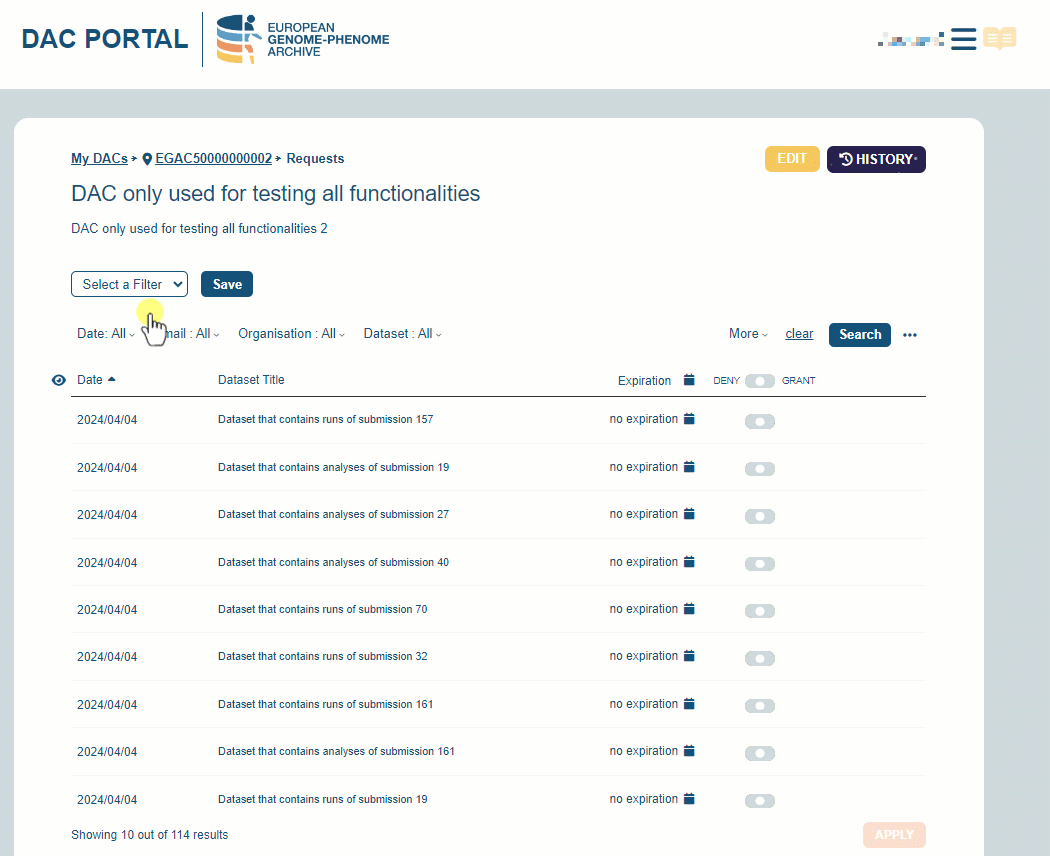
Set expiration dates for permissions and revoke them automatically
The latest update to the DAC Portal introduces a new feature allowing you to set expiration dates for new access requests. For instance, if you anticipate approving a data access request but only wish to grant access for a limited time, you can now specify an expiration date for the granted permissions. Once this date is reached, the permissions will automatically be revoked.
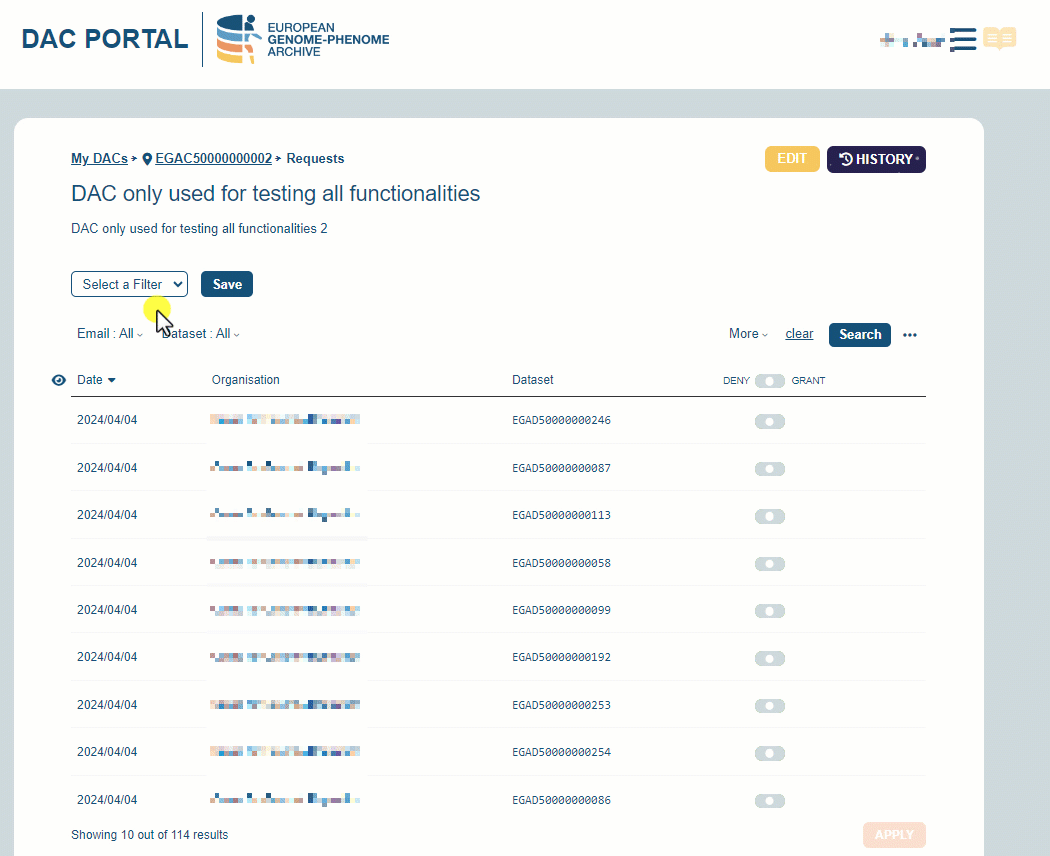
By default, permissions are granted indefinitely without an expiration date. However, if you ever need to revoke permissions, you can easily do so from the History page.
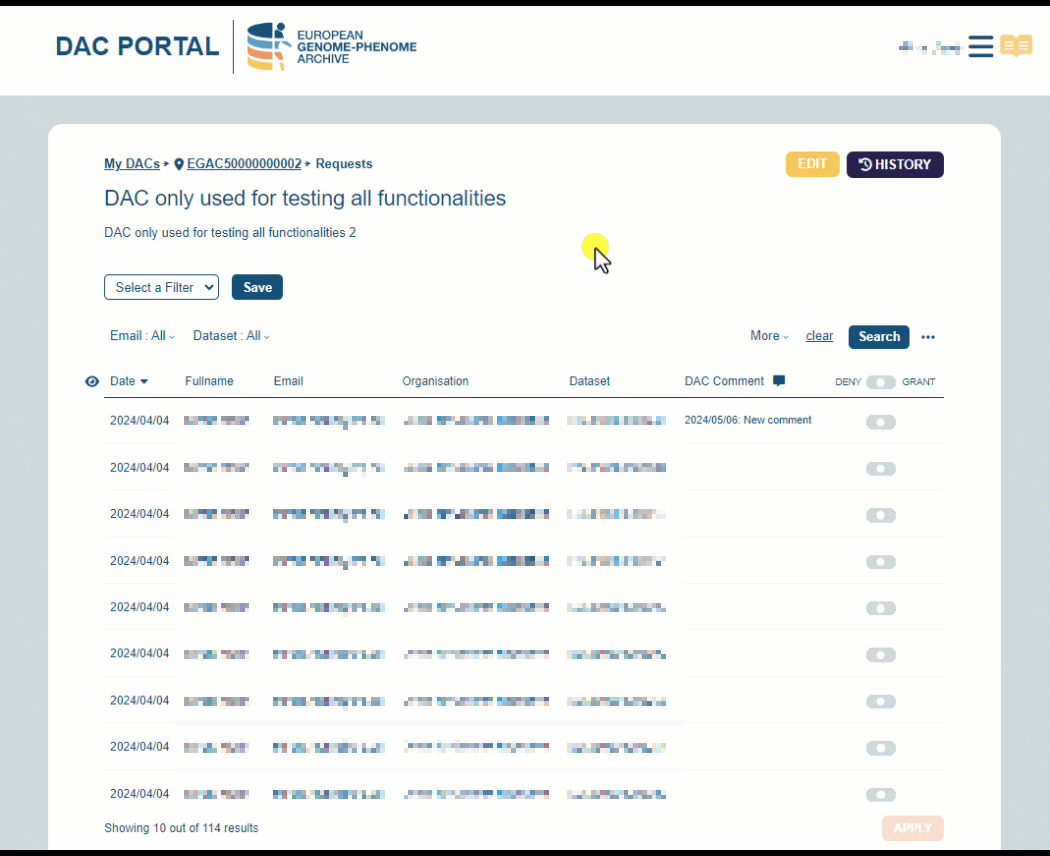
Audit your metadata objects
Managing and auditing your metadata objects will be easier from now on as the new DAC Portal enhances and facilitates your role as a Data Controller. This is possible thanks to the tables available in each of the primary tabs visible on the homepage: DACs, Policies and Datasets.
Starting with DACs, this section allows to check the policies linked to a specific DAC. In Policies, you can obtain a list of the datasets connected to a particular policy. In the Dataset tab, it is possible to group datasets by either DAC or Policy, as well as the release status.
Now you have the option of deprecating metadata objects that you don’t want to use anymore, or that were created by mistake. You will find the deprecate button on the EDIT page of the DAC, as well as for registered policies. You can find more information here. What's neat about this feature is that once a DAC or policy is deprecated, it becomes hidden within the DAC Portal. This ensures that you only see information that is consistently up to date!
Define your preferences regarding email notifications
For pending requests, you will be able to decide how often you want to get the notifications: daily, weekly or fortnightly. Remember, you will not receive email notifications for pending requests with a DAC comment!
Furthermore, you have the flexibility to decide which notifications you wish to receive, such as invitations to join a new DAC or notifications regarding DAC acceptance by the Helpdesk, among other options. Check the User preference to see the complete list of available notification settings!
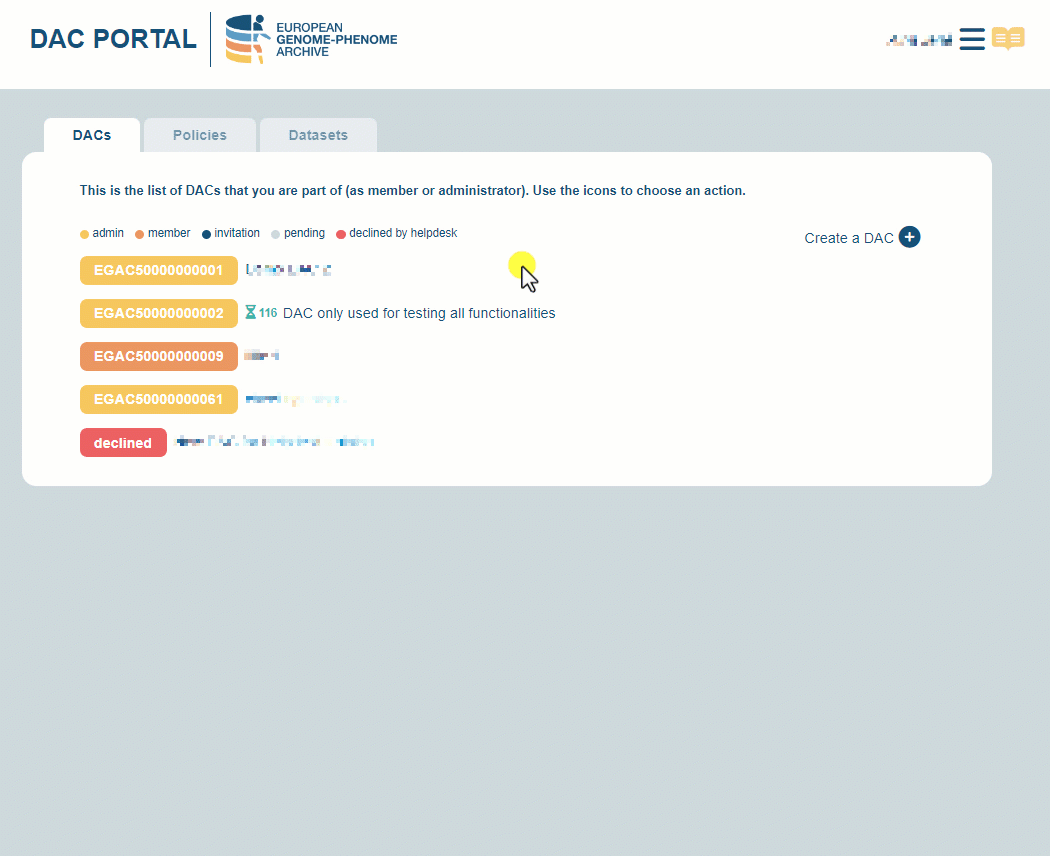
What’s next: incoming DAC Portal API
In addition to the new DAC Portal, we are excited to announce the release of the DAC API! This enables users to programmatically manage permissions. If you are interested in learning more about the technical specifications, you can consult the DAC API specification.
This post was written by Aina Jené and Ana T. Alonso.
